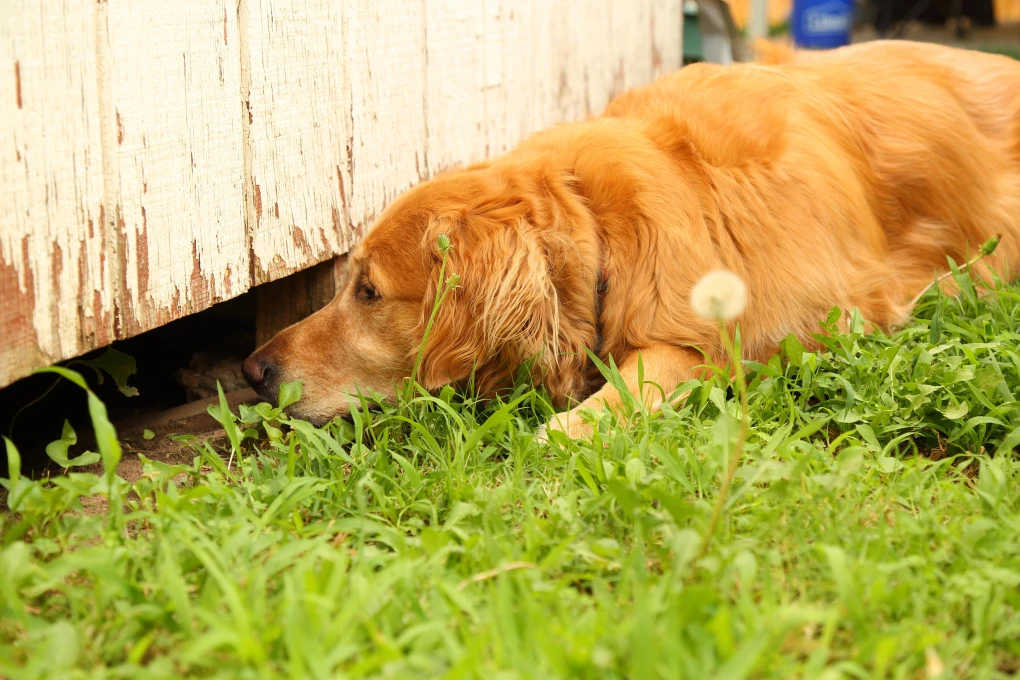Why Dogs Leave Their Owners Dead Animals | The Loyalty of a Hunter

Dogs have been known as loyal and affectionate companions to humans for thousands of years. They exhibit a wide range of behaviors that vary from breed to breed and dog to dog. One intriguing behavior that some dogs display is the act of bringing their owners dead animals. While this behavior may appear puzzling or even unsettling, it stems from a combination of their innate instincts, pack mentality, and an instinctual desire to share resources with their human "pack." In this blog, we will explore the fascinating world of canine behavior and shed light on the reasons why dogs exhibit this behavior.
- Instinctual Hunting Heritage:
Despite being domesticated, dogs still retain many of their ancestral hunting instincts. Historically, dogs have been hunters and scavengers, and bringing back prey to share with their pack is deeply ingrained in their genetic makeup. By leaving a deceased animal at their owner's feet, dogs may be demonstrating their hunting prowess or simply showcasing their natural instincts. - Pack Mentality and Resource Sharing:
Dogs are pack animals by nature, and they often view their human families as their pack. In a wild pack setting, hunting and bringing back food is a cooperative effort, with each member contributing to the survival and well-being of the group. When a dog brings a dead animal to its owner, it can be seen as an instinctual act of resource sharing, where they consider their human companion as a member of their pack and offering them a valuable resource. - Displaying Affection and Bonding:
Dogs are renowned for their unconditional love and loyalty towards their owners. In their minds, presenting a dead animal can be an act of affection and bonding. They may perceive it as a gift, showcasing their devotion and desire to please their beloved human companion. Dogs often seek validation and praise from their owners, and bringing a dead animal can be their way of seeking approval and reinforcing the emotional bond they share. - Seeking Guidance and Approval:
Dogs are highly attuned to their owners' behaviors and cues, and they constantly look to them for guidance and approval. When a dog brings a dead animal, it may be seeking validation from its owner. It could be interpreted as an act of seeking approval or even an attempt to involve their owner in their hunting instincts. Dogs inherently value the feedback and response they receive from their owners, and presenting a deceased animal might be their way of seeking acknowledgment and interaction. - Natural Instincts and Surplus Prey:
In certain cases, dogs may bring back dead animals simply because they have an excess of prey. Dogs possess an innate drive to hunt, and when they have a surplus of food, they may instinctively bring it back to a safe place, such as their owner's home. This behavior is rooted in their survival instincts and their desire to store resources for future consumption or to provide for their pack.
The act of dogs leaving dead animals for their owners, while sometimes perplexing, can be attributed to a combination of their instincts, pack mentality, and their desire to bond and communicate with their human family. It is important to understand that dogs do not exhibit this behavior out of malice or to frighten their owners; rather, it stems from their innate instincts and their deep-rooted desire to share resources and connect with their human pack. As dog owners, it is crucial to appreciate their unique behaviors and remember that, in their eyes, presenting a deceased animal is their way of expressing their love, loyalty, and a desire to involve us in their world.